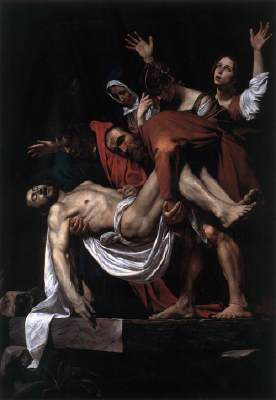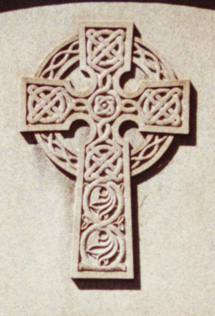A decade ago, I had occasion to be standing in a coal strip mine in eastern Kentucky. We seminary students were exploring the Appalachian region—mostly its interesting churches—but a side trip took us to this gaping pit in the side of a mountain. Coal affects everything in that region, even religion, so it was important that we see it for ourselves.
It was not a pretty scene. I had the feeling I was standing in a deserted lunar crater—jagged broken rock, muddy pools of water, a disfigured landscape. They had come, taken away the coal, then gone. And the hole was huge: several football fields wide and long. Other sites were learning reclamation, but not this one.
Our guide for the trip was neither anti-mining nor what you would call an environmentalist, in fact he was quite sympathetic to the needs of miners. Yet still he broke the pregnant silence of our group with this reminder: “Next time you leave the lights on in an empty room, think about this place.”
I have. Often.
Since September, on Sunday mornings we have been preaching our way through the Presbyterian Study Catechism, written in 1998. In recent weeks, we’ve been talking a lot about the “image of God” in us and its many implications, and the catechism has taken us to the first two chapters of the Bible:
Let us make human beings in our image, make them reflecting our nature, so they can be responsible for the fish in the sea, the birds in the air, the cattle, and yes, Earth itself. - Gen 1:26, The Message
The idea that there is something of God’s image in us is a monumental affirmation, especially when we consider that the ministry of Christ is to restore that very image from its shattered, obscured predicament. Christ makes us reflective once again.
Yet this brilliant image is not a thing unto itself. Too often we think about the image of God in isolation, seeing it only as a marker of our special relationship with the Lord. Sermons on the “image of God” often note how such an image sets us apart from the rest of creation, but rarely recognize how bearing God’s image also connects us to the larger creation through our vocation as stewards of all that God has made. Yet this is precisely the logic of Genesis 1:26. Let us make human beings in our image, so they can be responsible for the Earth itself. With the grand gift of relating to the great Triune God comes the calling of caring for all that this God has created. As such, the Study Catechism follows this logic, asking in Question 19:
As creatures made in God's image, what responsibility do we have for the earth?
Advent is upon us now, so although we won’t be preaching on this question from the pulpit, we take it up here in the mode of writing. The answer draws heavily on Genesis 1:26, linking God’s image with God’s calling:
God commands us to care for the earth in ways that reflect God's
loving care for us. We are responsible for ensuring that earth's gifts be used
fairly and wisely, that no creature suffers from the abuse of what we are given,
and that future generations may continue to enjoy the abundance and goodness of
the earth in praise to God.
Seeing this question coming down the pike in our series, I’ve being thinking about this a lot lately … thoughts I have dubbed “Recycling for Jesus.” A few considerations:
We Christians need to find fresh ways to talk among ourselves about environmental concerns, a fresh conversation that avoids the all-too-common pitfalls of fanatical environmentalism on the one end and knee-jerk denial on the other. These extremes are as hackneyed now as they are predictable.
Regarding this matter of our care for the creation, my experience of you, congregation, is that although no one in our kirk is likely to sign up for a Greenpeace protest any time soon, neither are very many of you callous to or in denial of the larger issues. There is none among us so immune to our confession that he/she is bent on consumption without reflection.
Yet sometimes even well-intended persons can become so concerned about falling in with the fringe extremes of an issue that their genuine sensitivity to the concern is lost in the shuffle. So it is often, I think, with “environmental” concerns. At least within the church, if nowhere else, we need to move beyond the polarizations and learn again how to connect our Biblical faith to the world around us. (See one interesting effort at www.christiansandclimate.org/statement. It’s not perfect, but it’s a worthwhile attempt.)
Speaking of “environmentalism,” therein lies part of the problem. Language is not insignificant in these matters, and part of the work of reinventing the conversation about caring for the creation is to remember our Biblical vocabulary. From the perspective of Christian faith, environment (and therefore environmentalism) is not nearly a hefty enough word to describe our generous surroundings. The world is not merely an inanimate platform on which we stand, a pantry housing the things we need to live at a level we feel we deserve. In contrast, Genesis 1-2 is nothing if not a celebration that all living things exist in glad response to God’s invitation to do so. As such, there are not merely consumables, they are gifts—bearing both blessing and burden.
The word nature is also problematic, likewise suggesting that the world is a stand alone, self-supporting entity, unanchored from any external and overarching reference point. Yet through the eyes of faith, we are bold to believe that all life—not the least of which our own!—depends upon the providential goodness of the Triune One who called it into being, who sustains it now, and who will be present to it at the grand ending. Only creation as a title seems to capture the spirit of the psalmist:
The heavens are yours, the earth also is yours; the world and all that is in it.
Granted, Psalm 89 is more a song of praise than a scientific argument, yet that is precisely the point: Right about now our technical debates about environmental concerns could use a breath a fresh doxological air; a breeze of rich, Biblical vocabulary. A creation is fully alive in and of itself, yet that life is borrowed, gifted, sustained, and renewed by Another. In the same way that we are not our own, but belong to God through the Christ, the creation is not its own, but belongs to God—a management subcontracted to God’s people.
Back to my standing in the strip mine: In the years since, I have often reflected often on that moment. It seems to me that a large part of the visceral response to an ugly place like that is the sudden awareness of the actual cost of our tremendous appetite as a society (in this case, for electricity). Taking responsibility for our consumption is no easy thing when the consequences are out of our everyday view.
A rough analogy: Give someone cash and they’ll likely hold tight to it as they watch and feel the dollars leave their pocket with each purchase. There is a finite supply. Give them a credit card, however, and they’re more likely to spend and spend, mostly because the final tally won’t come for some time. This is why my day at the mine has stuck with me all these years: I felt I had a glimpse into the world’s billfold.
Do you notice how in the this ever more convenient world of ours, every new advancement in ability makes it that much more difficult to restrain ourselves? We Americans are great at the “Can we?” questions. Yet lately, we are not so good at the “Should we?” questions, particularly when it comes to consumption. The real work lies with the latter. (Consider Luke 12:13-21 and the conclusions that follow.)
What can one Christian do to really make a dent in that societal consumption?
Very little. Painfully little. Therein lies the rub.
One of my conclusions over the years is that although there is precious little I can do to undue that ugly scene that stretched out before me in that strip mine, there are many simple actions I can take at least to avoid the kind of numb apathy and outright denial that so often proceeds from the enormity and complexity of the whole big mess. Said simply: I cannot undue greenhouses gases, but I can certainly curb my contribution to them. I cannot screen all the toxic junk from the Staunton River, but I can tote my old motor oil down to Advance instead of pouring it out in the woods.
Here’s the point: Whether my small actions contribute in some way to an overall fix or not, restraint is still the right thing to do. Furthermore, as a Christian, the rightness of restraint is rooted, not in an isolated environmental ideology, but smack in the middle of my Christian confession. The world is yours and all that is in it, O Lord. From that glad confession comes forth the desire to care for the creation in simple, common sense, workable ways.
To be sure, larger economic, social, and scientific matters must be engaged, and engaged from the vantage point of our Christ-confession. But on most days, in most of our lives, the more pressing vocation is a simple, consistent restraint from excess and waste.
Needs and wants are easily jumbled this days, with so much available to us so easily and cheaply. These days, a little restraint turns out to be a bold confession of faith, for learning to say NO in a land flowing with cheap and convenient YES’s is as likely to turn heads as a wild-and-wooly preacher on the corner. (Maybe more so, since most people are likely to conclude that the guy on the corner is a nut.) But regardless of what others think, in cutting back a bit, one learns to live in a way grounded in gratitude for God’s gift of a creation to call our home.
So, to quote the Christian thinker Frances Schaeffer, “How then shall we live?” What might a simple restraint look like these days, particularly one that is grounded in an awareness that the earth is in fact a creation?
On the one hand, I hesitate to make suggestions. You are smart, savvy people, my dear Presbyterians, and you don’t need your pastor telling you how to run your household. Specifics almost feel to me like an insult to you. On the other hand, I do not want an essay like this to float up there in the stratosphere, feet too far off the ground of everyday living. Ours is, after all, an incarnational gospel—a goodness rooted in the here and now, not a detached philosophy.
As such, allow me to make a few modest proposals, a few the Hawkins have been working on in our household in recent years. To the extent that I am preaching to the choir, let me say, “Terrific!” Keep it up. You could probably teach me a lot by adding to this short list.
Recycle what you can. Buy a few new garbage cans and place them in your basement or garage. Instead of throwing away your newspapers, cardboard, office paper, plastics, aluminum and metal—throw it all in your new cans. Once a month or so, when you are already making a trip out that way, drop it by the Campbell County landfill (they have recycling collections) or at one of the sites in the Lynchburg area. Simple as can be.
Turn down the heat, turn off the lights, and cut down on the baths. Most of us grew up with at least one parent who constantly reminded us to turn off the lights when we left a room. He/she was right. No one flick of the switch will rescue the creation from waste, but it all adds up—particularly over a lifetime. Put on another layer of clothes and turn down the thermostat. Take showers instead of baths. Give up keeping pace with the neighbor’s yard and skip a few watering in the summer. You get the idea.
Think through your week ahead of time so as to avoid excessive trips up the road to Lynchburg and beyond. While I’m no big fan of Wal-Mart, maybe its coming to Altavista is a small blessing. At least now we don’t have to burn excessive gas just for a gallon of milk and some socks. Elizabeth and I have been working hard to consolidate our trips to Lynchburg in recent years, recognizing that it is easy to hop in the car and “run up there” for just a few things. Sometimes there’s no choice in the matter. But often errands can wait until other needs take us up the road. Save that extra gas money and drop it in the Two-Cents-a Meal offering.
As many of you know, no one likes gadgets and computers more than I do, yet I am also aware that each new gadget demands still more energy. Turn off your computers and gadgets at night. If you hate the wait of booting up, put your computer in Hibernate or Suspend. It turns off, but it also comes right back to the place where you left it. It’s a simple way to save some energy over the years.
Slow down. The extent to which we run our lives too ragged is the extent to which we run out of energy to make good choices, therefore we are handled by our lives rather than being stewards of what has been entrusted to us. C.S. Lewis observed years ago that lazy people actually work the hardest of all of us, because they abdicate their responsibility to make good decisions and are thereby handled by their circumstances. I’m told by others that the reflective, prayerful life necessarily weans one off of excessive consumption and a frenetic pace. Consider Philippians 4:6-7 as an antidote. Maybe Paul understood this long ago, busy as he could get.
The other day I read online about one man’s personal environmental policy: If I wouldn’t do it or wouldn’t want it in my backyard where my children play, it’s probably not a good thing for the [creation]. I like that. It is a reminder that what we are after as everyday Christians is a common-sense approach to caring for the creation. The modest proposals above, I hope, are a simple way to start.
Neither the idealist nor the pessimist will do with this matter. Instead, right about now we need what you might call confessionalists—persons of simple Biblical faith who see the world as God’s alone, entrusted to us to be cared for in ways that reflect the Trinity’s generous goodness and grace. It is, all at once, that simple and that challenging.
One final thought: In American society, not too long ago, there was a generation of citizens who preached restraint, simplicity, and gratitude. They had lived through hard times, they were forced to live on precious little, and they had come to understand that steady restraint was not on option if there was to be enough for all. It is my observation that those wise citizens are either no longer with us anymore, or worse, they have in their old age been coaxed and spoiled into a noticeable silence. This is a shame, for the citizenry of the most plentiful land in the world need that voice of restraint right about now.
In that unfortunate silence, perhaps there is a renewed place for Christian witness. Maybe the church is the last best hope for producing neighbors who could practice pushing back from the table of such incredible American abundance and learn to say, “Thank you, but I’ve had all I need.”
This would be a move made, not out of liberal guilt, or out of conservative duty, or from an ideological banter of any kind, but simply out of a faith-awareness of what an awesome gift this world is. And, maybe the church—as opposed to a rally, or a laboratory, or a policy room—is finally the best place for learning to understand that the beauty of God’s good creation is sullied to the extent that it is wasted, horded, or damaged. Said positively, in the language of the catechism,
God commands us to care for the earth in ways that reflect God's
loving care for us. We are responsible for ensuring that earth's gifts be used
fairly and wisely, that no creature suffers from the abuse of what we are given,
and that future generations may continue to enjoy the abundance and goodness of
the earth in praise to God.
One wonders if some of our most poignant acts of discipleship happen in the simplest of actions. Perhaps our most deliberate songs of praise come forth to the sound of plastic jugs falling one after another into the bin for reuse and remaking.
No one is talking about taking on the world. There are no magic bullets, quick fixes. For now, it’s just about practicing a little restraint in response to God’s goodness. It’s about trying to recycle for Jesus. And maybe also stopping every now and then to consider just how those two words—strange as they may sound in a shared sentence—can in fact go together.
That’s something.










